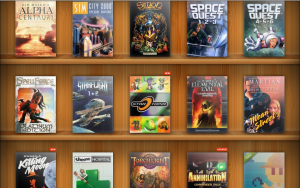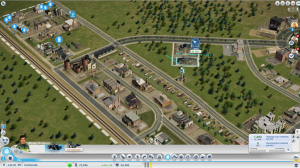Last week the Electronic Frontier Foundation or EFF reached out about the opposition they’re facing from the Entertainment Software Association or ESA on the subject of video game preservation. The issue has to do with the use of hacking games to preserve them and their relation to piracy today and brings up a tricky subject of what it takes to preserve games compared to other mediums.
Keeping the Game Going:
Video games are not like other mediums when it comes to preservation and there is a lot more work and things to deal with. Visual media like books and paintings can be digitally recreated and require little interaction on the consumer’s end in order to experience them. The same goes for TV shows and movies and how as long as the original media exists, it can be digitized and made available on any number of streaming services.
Video games aren’t so lucky because you need at least three different pieces of hardware all working right in order to experience them: The game console, the storage medium that contains the game files and whatever form of controller that the platform needs. If one of those three happens to break or can’t be recovered, there is literally no other way to play the video game.
Compounding matters is that many video games and platforms are now abandoned for one reason or another. Maybe the original IP is lost, maybe the company that developed the platform or game is no longer in business or doesn’t manufacture it anymore. No matter what, it means that the game is not making anyone money. This is where the use of emulation to properly simulate games come into play.
Emulation Woes:
Emulation comes in two distinct forms: First is designing a platform with hardware from the previous console/s that can run the game like the original platform, see the PS2, PS3, Wii and Wii-U as examples. The other option is to create software that is designed to simulate the running and timing of the original platform and in essence “trick” the game software into thinking that you’re playing it on the original platform.

GOG is the premier site for providing workable copies of classic games, but there are limits to how far they can go back in terms of technology
Besides options like the PS Store and Wii Virtual Console, there are many software emulators on the market today that allow you to play classic games on your computer or mobile device and this seems like a good fix, but that is not the case.
The difference between a good emulator that runs the game perfectly vs. one that constantly bugs out or doesn’t work right is night and day and so are the requirements. You need a machine several times more powerful than the original platform in order to properly run emulated software and the technology literally doesn’t exist yet to be able to create a standalone perfect software emulator for games beyond the N64 era.
While yes, the Wii-U with the virtual console can emulate those older titles, you need to understand that the machine was built with hardware specifically made to run those emulated titles at the expense of new technology. There is only so much room and hardware able to run emulated games today while playing modern games and we are reaching a point where the technology needed to run older games will simply require too much of a cost in order to properly integrate with modern games and hardware.
Even with PC games, it’s getting harder to create perfect emulations or versions that can run on modern hardware. When I spoke with GOG a few years ago, they specifically said that games from the pre windows era are some of the hardest (if not impossible) games to properly get working on modern machines because DOS is not really supported anymore.
And then there is the technological gap that is growing with every year. I remember when 16 Megs of Ram was considered top of the line and a 56K modem was the future. The point is that old software cannot properly work with machines that are so many times more powerful than the ones they were designed for; even with emulation software.
Despite those problems, there are newer issues with preserving modern games. Many games came preinstalled with nasty DRM that can cause problems with running the game or to your computer and modern games that require server authentication to work will die overnight if the developer/publisher decides to take it down due to cost. We can also talk about the numerous of online multiplayer games that have had their online servers pulled (* Insert any number of EA games here) and are now not playable online.
This is where the EFF came in and what they feel needs to be done in order to preserve games.
The DMCA Debacle:
The Digital Millennium Copyright Act or DMCA was put in place by Congress in 2000 as a means to fight against digital piracy. The part that specifically impacts the Game Industry is that it finds it illegal for someone to modify game files in order to get around DRM or to create a piece of hardware/software that can run modified games.
Now obviously you can see that this was designed as a means to prosecute pirates and hackers who are trying to play games for free with emulated software or cracked systems, but this also gets in the way of preserving games. With the technology gap growing and the difficulty in acquiring the means to play these games, the use of modified hardware and software will have to be utilized in order to play these games.

Games with required online connectivity have a limited lifespan due to the requirement of outside support from the developer. Once taken down, a lot of the game’s functionality disappears
For instance, who here really believes that in 50 years there will still be fully functioning NES consoles, cartridges and controllers laying around for someone who wants to play the original Zelda.
I’ll make things even easier: Who thinks in 50 years we’ll still be able to play Xbox One or PS4 titles on their respective consoles?
This is why the EFF is calling for an exemption on the DMCA, specifically on Section 1201 that prohibits people from modifying software to keep it working when the original hardware or servers aren’t available. They feel that people who are working to preserve these games to still enjoy them should be protected and not prosecuted as people who are hacking consoles and games to run the latest titles for free.
The ESA came in to challenge this with one of their main points is that if we allow people to hack hardware and software to preserve games, then we are opening up the door to say that it’s okay to pirate games.
The hacking at issue here— that is, the modification and reproduction of the video game console’s firmware, with all of its attendant consequences—is not a fair use… There is abundant evidence that the primary reason many users seek to hack video game consoles is not to create new and different works, but to avoid paying the customary cost of existing works or devices — Excerpt from the ESA’s complaint
As we’ve talked about over the course of this piece, it’s getting harder and harder to legitimately play the games that we bought and if the developer or publisher no longer supports it, then how are we supposed to keep these games available? But that question is for another post.
To Be Continued:
We are over 1,200 words for this piece and we haven’t even delved into the debate from both sides yet and what my thoughts are on the matter. I will be back real soon with the conclusion to this piece where we’ll focus on the debate side of things.

